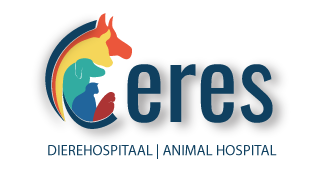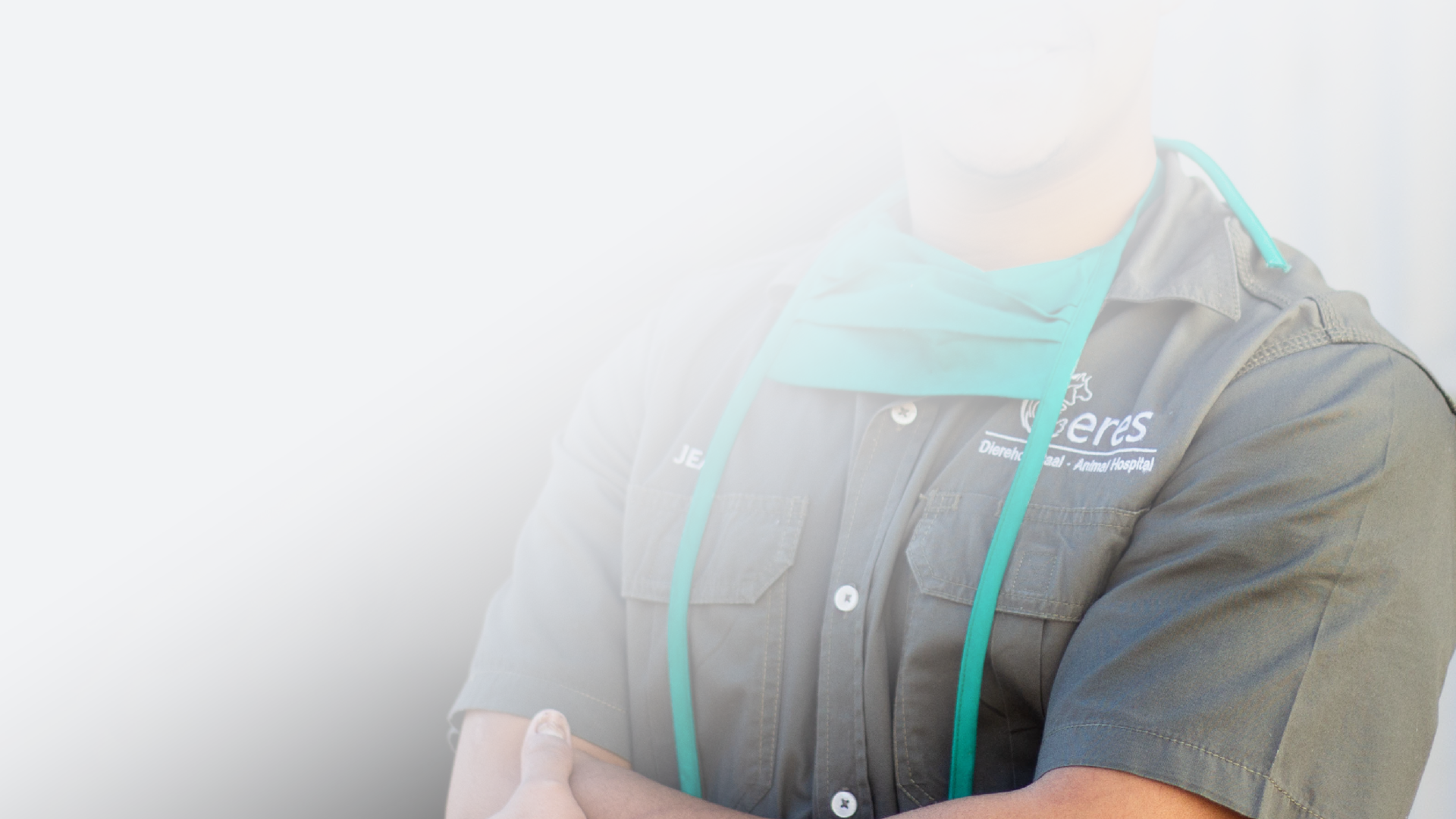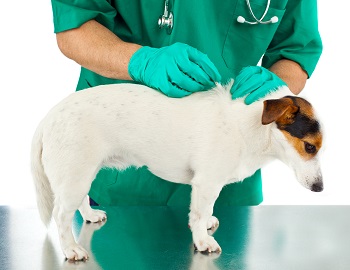
Getting a new puppy or kitten is always exciting and most of us just want to cuddle this cute little bundle of fur. It would be lovely if this were enough to keep them healthy and disease free forever but unfortunately it isn't. Just like human children, animal babies also need immunization when they are very young.
A newborn puppy or kitten isn't naturally immune. They do have some antibody protection that they received through the mother's blood via the placenta, but this is roughly only 10%. The other 90% is through the first milk they take in from their mother. This milk is called first milk or colostrum because only the milk produced in the first two days after birth contains antibodies (called maternal antibodies). These antibodies are like little soldiers standing ready to counter any attack from a virus (the enemy). The intestinal lining of the newborn starts changing 6 hours after birth and starts losing the ability to absorb these antibodies. It is therefore very important for new puppies and kittens to start suckling as soon as possible after birth. The newborn is only able to absorb these maternal antibodies for the first two days of its' life. Proper vaccination of the mother will ensure that she has proper antibodies levels which can then be passed on to her babies. If for some reason the puppy or kitten did not receive this precious colostrum (fostered pets, bottle fed pets or perhaps failure of the mother to produce milk), they will be at a greater risk of contracting disease.
Maternal antibodies circulate in the newborn's blood for a number of weeks. There is a period during which time the maternal antibodies are too low to provide protection but too high to allow the vaccine to work. This period is called the window of susceptibility. This is the time when despite being vaccinated, a puppy or kitten might still contract a disease. It is quite possible that high levels of maternal antibodies will block the effectiveness of a vaccine and vets therefore recommend multiple initial vaccinations. The vaccine will only work once the level of maternal antibodies has dropped to a low enough level. The length and timing of the window of susceptibility is different for every litter and even individuals in a litter. Research has shown that at 6 weeks 25% of puppies could respond, at 9 weeks 40% and by 16 weeks this increased to 60% and by 18 weeks nearly 95% responded by developing new antibodies after being vaccinated.
Vets usually recommend that puppies are vaccinated for the first time at 6 weeks of age and kittens at 8 weeks of age. They have to receive at least two booster vaccinations thereafter with monthly intervals.
The first Rabies vaccination can only be given when the puppy or kitten is 3 months of age and they have to receive a booster vaccination one month later.
Puppy schedule:
- First vaccination given at 6 – 8 weeks. This is a 5-in-1 and includes Parvovirus, Distemper, Hepatitis and Parainfluenza
- Second vaccination given at 10 – 12 weeks. This is another 5-in-1 and if the puppy is 12 weeks old the first Rabies vaccination can be given.
- Third vaccinantion given at 14 – 16 weeks. This will be the last 5-in-1 and the first or second Rabies vaccination. If it is the first Rabies vaccination the puppy will require a booster in one month's time.
Kitten schedule:
- 8 weeks: Vaccinated against Calici virus, Panleukopenia and Rhinotracheitis.
- 12 weeks: Same as at 8 weeks plus 1st Rabies vaccination
- 16 weeks: Rabies booster.
For both dogs and cats it is recommended to have vaccinations every 1 – 2 years after the primary vaccinations.
Summary of Dog diseases vets vaccinate for:
Distemper: This is a highly contagious viral disease that affects a dog's respiratory tract (lungs), gastrointestinal tract (gut) and nervous system (brain). It can be airborne or spread through contact with an infected animal. Symptoms are coughing, sneezing, nose and eye discharge, fever, loss of appetite, vomiting, diarrhoea and seizures (muscle tremors especially of the mouth and head)
Infectious canine hepatitis (adenovirus): This is a viral disease spread by contact with infected animals, their stools, urine or saliva. It affects the liver, kidneys and cells lining the blood vessels. Symptoms include fever, diarrhoea, abdominal pain, liver failure, loss of appetite and depression.
Parvovirus (also known as Cat Flu): This is a very common viral disease. It is deadly and usually strikes young puppies. It spreads by infected dogs’ blood, stools or vomit. When the disease first appeared it was believed to be transmitted from cats to dogs and hence the name cat flu, however, this was proven NOT to be the case and dogs do therefore not contract catflu from cats. Symptoms include severe diarrhoea, fever, chronic vomiting, loss of appetite and dehydration. This is probably the most critical first puppy vaccination. It is often fatal despite aggressive treatment and too often seen by vets.
Parainfluenza: This is another infectious viral disease that can be one of the causes of “kennel cough”. It affects the respiratory tract and spreads quickly among dogs in close quarters – from there the name. It is airborne as well and therefore can also be seen in dogs without direct contact with other dogs. Symptoms include a dry hacking cough, loss of appetite, depression and a runny nose and sometimes a fever.
Rabies: This is a viral infection that affects the central nervous system. It results in paralysis and death. Rabies is always fatal in animals. In humans who have been bitten by an animal infected with Rabies, it can be successfully prevented if treated very shortly after the person has been bitten. Once a human has contracted the disease though, there is no cure. People who contract Rabies die a terrible agonising death. Animals with rabies are NOT treated and are put to sleep even if rabies may only be suspected. This is done to prevent human infection and fatalities. The disease is spread by the bite of an infected animal. In South-Africa the rabies vaccination is required by law. Symptoms vary, but domestic animals may be very excitable, very aggressive and wild animals can show the opposite by being uncharacteristically tame.
Cat diseases we vaccinate for in summary:
Calici virus and feline herpes virus cause upper respiratory (nose, sinuses and windpipe) signs such as nose and eye discharge called Rhinotracheitis. This is also commonly known as 'snuffles'. The Calicivirus can also cause ulcerations on the tongue. The biggest concern with these two diseases is that they cause loss of appetite and dehydration in young kittens.
Panleukopenia virus: This is caused by the feline parvovirus and symptoms are similar to the canine parvovirus.
Some people may think that vaccinating a pet is waste of time and money. Hopefully you have now seen that it is completely the opposite. Vaccinating from a young age can prevent serious diseases (costly and not always successful treatment) and heartache when a precious puppy or kitten passes away. After the initial 3-4 vaccinations, vets recommend that pets are vaccinated on a yearly basis. There has been research done that might suggest that every 3 years would also be sufficient, but if you count each animal year as 7 years, this will be the human equivalent of only seeing your doctor every 21 years. Your pet's annual shots do not only include an injection, the vet should also do a complete general check-up. This includes checking your pet's teeth, coat and eyes, listening to the heart and lungs, checking for lumps/bumps and feeling the abdomen. The vet should also ask you about your pet's general well-being. Questions regarding water intake, appetite and frequency of urination are important. Your vet should also look at your pet's stools. This general check-up becomes increasingly important for pets older than 7 years – these guys are regarded as our senior members. The cost of a yearly vaccination/check-up is a small price to pay to keep your pet in good health for as long as possible.
© 2018 Vetwebsites – The Code Company Trading (Pty.) Ltd.


